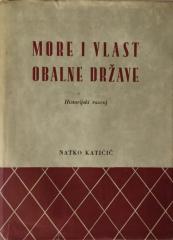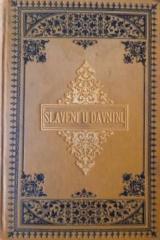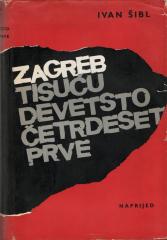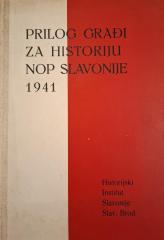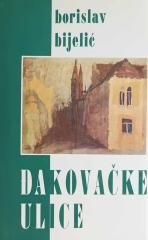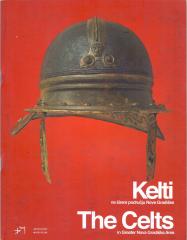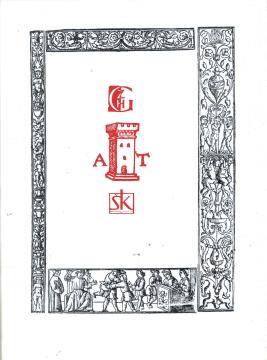
Prva hrvatska glagoljska početnica: pretisak Početnice iz 1527
The oldest preserved Croatian primer and a significant monument of Croatian Glagolitic heritage, printed in Venice by Andrija Torresani. Facsimile reprint from 1983, with transliteration and afterword by Josip Bratulić.
The book has six leaves (11 pages) and is richly illustrated with 20 woodcuts that mark the sections, including a depiction of the twelve apostles. The language is Old Church Slavonic of the Croatian redaction, while the closing prayers are in the Čakavian, a vernacular language, intended for personal devotion, such as prayers at meals.
The content of the primer follows the model of the Latin primers: after the pious invocation, the Glagolitic letters are in a row, followed by the Angelic Salutation (Hail Mary), the Lord's Prayer, the five Psalms of David (109–113), the Magnificat, the Song of Simeon, and the Apostle's Creed with a mixed order of the articles of faith. The closing prayers have an apocryphal character, as Bratulić states. The aim of the reprint is to preserve the reading of the Glagolitic script among pupils, students, and lovers of Croatian culture, thus preserving the testimony of the people's ups and downs.
The Torresania printing house, known for the Baromić Breviary (1493), played a key role in Croatian printing. The primer from 1527 precedes larger works, such as the Missal of Pavle Modrušanin (1528). The National and University Library purchased the original copy from a Munich antiquarian, making this reprint possible. Bratulić's afterword emphasizes the importance of the Glagolitic script as a symbol of Croatian literacy and cultural identity.
Jedan primerak je u ponudi
